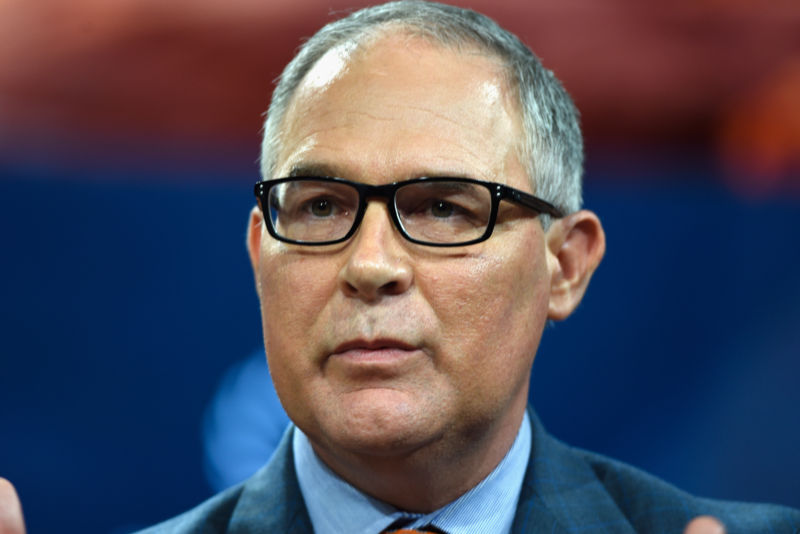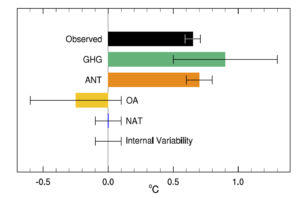
On Wednesday, an internal Environmental Protection Agency memo was leaked to the Huffington Post. Under the guise of developing “consistent messages about EPA’s climate adaptation efforts,” the memo suggests a number of talking points the agency’s employees can use if asked about adaptation. Most of them are general statements about how the EPA would like to help citizens and local governments manage adaptation. But there are two that directly address what we know about our changing climate, and both of them do a pretty awful job with the subject.
The memo, which has been confirmed as authentic by the EPA, is from Joel Scheraga, a senior advisor on climate adaptation. In it, Scheraga says that the EPA’s Office of Public Affairs has developed a set of talking points on climate issues. While he’s pleased that many of them focus on adaptation, it’s striking that they describe nothing but adaptation. Scheraga describes them as general “talking points about climate change,” yet they don’t contain a single mention of greenhouse gasses or any action by the EPA that might limit greenhouse gas emissions.
But that’s hardly the only issue with the talking points, given that one is largely false and a second is questionable at best.
One of the talking points reads as follows:
While there has been extensive research and a host of published reports on climate change, clear gaps remain including our understanding of the role of human activity and what we can do about it.
It’s very strange to mention the extensive studies we’ve done, yet not say a single word about the overall conclusions they’ve led to. And while studiously avoiding discussion of what our understanding is, the talking point immediately claims there are “gaps” in it.

We actually have a very good idea of the role of human activity in driving recent climate change—we’re making the planet warmer. We even have a good catalog of the ways that human activity influences the climate, as neatly summarized in a graph produced by the IPCC over five years ago. While the graph shows that uncertainties remain regarding our exact impact, it’s misleading to call those “gaps”—they’re not empty spaces but rather areas where our understanding is imprecise. So while we know that our greenhouse gas emissions warm the planet, the amount of warming they’ll generate isn’t known to an arbitrary precision. Similarly, we have a good sense that the aerosols we produce are probably having an overall cooling effect, although the magnitude of that cooling also has some uncertainty attached to it.
To present these uncertainties as “gaps” is odd; to indicate that these gaps mean we don’t know what we should do to address climate change is simply false. Anything that leads to a net reduction in carbon emissions would very plainly help.
The same issue shows up in another talking point:
Human activity impacts our changing climate in some manner. The ability to measure with precision the degree and extent of that impact and what to do about it are subject to continuing debate and dialogue.
Again, we have a very good idea of what the impacts are, as well as their magnitude. Most of the debate regarding these values centers on the best way of lowering the remaining uncertainties.
Overall, the memo uses a common tactic when it comes to inconvenient scientific information: it emphasizes remaining uncertainties as a way to avoid acknowledging the overall picture, where there is little remaining uncertainty. Why would a science-focused organization do that? The answer is given in the final talking point: “Administrator Pruitt encourages an open, transparent debate on climate science.”
https://arstechnica.com/?p=1285647

